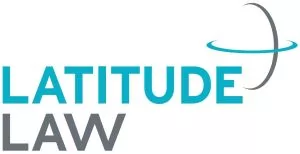UK-based businesses that have been granted a sponsor licence must comply with numerous regulations to maintain that licence. Common compliance issues include, but are not limited to:
1. Record keeping duties:
a. Failing to keep accurate and comprehensive records of sponsored employees, including contact details, work addresses, and up-to-date copies of relevant documentation like passports and biometric residence permits.
b. Not maintaining proper records of absences (e.g., holidays, sickness, parental leave).
2. Reporting Duties:
a. Failure to report changes to the business, such as the size of the business, main office address, changes in the status of any registration or accreditation you are legally required to hold to operate or trade in the UK (these changes must usually be reported within 20 working days).
b. Not informing the Home Office about changes in a sponsored worker's circumstances, such as changes in job role, salary, or work location, within the required timeframe (usually 10 working days). This also includes not reporting if the sponsored worker breaches the terms of their immigration permission, for instance, by not turning up for work or terminating their employment.
3. Conducting Right-to-Work Checks:
a. Failing to conduct thorough right-to-work checks before employing a sponsored worker or not conducting follow-up checks as required.
b. Allowing sponsored employees to continue working without valid leave or permission to work for your business if they are sponsored by another business.
4. Salary and Job Role Compliance:
a. Employing sponsored workers in roles that do not match what was stated in the Certificate of Sponsorship (‘CoS') because their actual job is not listed in Appendix Skilled Occupations of the Immigration Rules.
b. Choosing an occupation code that does not accurately match an employee's job description, as a means of paying them less than the going rate for their actual occupation code.
5. General Compliance Failures:
a. Not having adequate Human Resources systems and processes in place to ensure ongoing compliance with sponsor licence duties.
b. Failing to report changes to any key personnel, not having at least one level 1 user who is an employee or office holder of the business etc.
c. Not co-operating with a compliance check carried out by the Home Office.
6. Annual Renewals and Audits:
a. Being unprepared for unannounced compliance visits and audits by immigration authorities, which can lead to the discovery of compliance breaches.
b. Not applying for the renewal of the sponsor licence on time (if your licence is due to expire on or after 6 April 2024, you no longer need to renew your licence).
Failure to comply with these duties can result in penalties, including downgrading of the sponsor licence rating, suspension, revocation of the licence, and substantial fines. It is crucial that sponsor licence holders are familiar with their duties and responsibilities, and regularly refresh their memory by reading the most up-to-date versions of the sponsor guidance, and checking any messages that have been posted within the sponsor management system (‘SMS').
The content of this article is intended to provide a general guide to the subject matter. Specialist advice should be sought about your specific circumstances.


